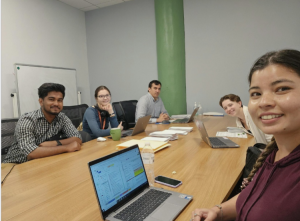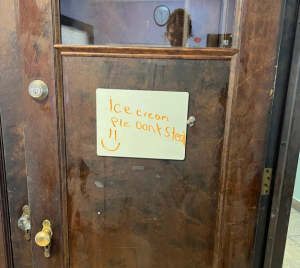 After my first week at Heartland Human Care Services, I had already picked up on a trend of adaptation within the organization in the face of federal policy change. After a month, I have learned that the term “adaptable” fits no one more than the immigrants and refugees we serve. They come from countries all across the globe, fleeing war, persecution, and denial of human rights. Many of them do not speak English and are completely unfamiliar with American culture and infrastructure. I have met participants who are highly educated and professionally trained in their home countries, but unable to secure employment in the United States due to language barriers and lack of accepted credentials. All of them struggle through complicated bureaucratic processes to secure clothing, housing, and food for themselves and their families.
After my first week at Heartland Human Care Services, I had already picked up on a trend of adaptation within the organization in the face of federal policy change. After a month, I have learned that the term “adaptable” fits no one more than the immigrants and refugees we serve. They come from countries all across the globe, fleeing war, persecution, and denial of human rights. Many of them do not speak English and are completely unfamiliar with American culture and infrastructure. I have met participants who are highly educated and professionally trained in their home countries, but unable to secure employment in the United States due to language barriers and lack of accepted credentials. All of them struggle through complicated bureaucratic processes to secure clothing, housing, and food for themselves and their families.
As I work with participants who are constantly adapting, I have had to adapt too. My first week on the job, my supervisor and I met up with a participant and her mother to address some of their concerns. The participants spoke Spanish, but my supervisor, despite being fluent in several other languages, does not speak much. Instead, she turned to me and asked, “Do you speak Spanish?” I responded that I speak some, and she was quick to have me help translate their interaction. Since then, I have used Spanish almost every day on the job, stretching and growing my language skills with every interaction. I remember being horribly nervous the first few times I had to rely on Spanish alone for communication, afraid I might say the wrong thing or forget every Spanish word I’d ever learned. Sometimes I did forget words I should have known or grammar that should have been obvious, but in the end, I found that pushing through the struggle was what counted. Taking the time to fumble with my words is what has helped me to learn and improve, even over the course of one short month. There is also something truly meaningful about meeting someone halfway by speaking their language, even if you don’t always have the right words. Adapting to the communication needs of the participants I work with has been deeply rewarding, allowing me to not only better meet their needs, but also to build real rapport and trust.
 Calling and Purpose in Society, CAPS, this is what the fellowship is all about and how we, as individuals, find it within non-profit work. Over the course of the summer we have had some very thought provoking readings and discussions, in particular over Frederick Buechner’s idea that calling lies “where your deep gladness and the world’s deep hunger meet”. And now as I am wrapping up the final two weeks of this internship I turn back to it. Finding the world’s deep hunger is a very daunting task; in the current state of the world there are many hungers that need our attention. Erie Neighborhood House’s focuses on the hunger involving immigration and supporting the Latinx community and within Erie House, the READS program helps engage students in literacy work over the summer. To some this may seem like we are getting further and further away from the truly deep hunger but in reality this program is helping many families receive support and resources that they need. This theme is at the core of most of the world’s hunger and one could consider those supports and resources the small hungers of the world creating the deep.
Calling and Purpose in Society, CAPS, this is what the fellowship is all about and how we, as individuals, find it within non-profit work. Over the course of the summer we have had some very thought provoking readings and discussions, in particular over Frederick Buechner’s idea that calling lies “where your deep gladness and the world’s deep hunger meet”. And now as I am wrapping up the final two weeks of this internship I turn back to it. Finding the world’s deep hunger is a very daunting task; in the current state of the world there are many hungers that need our attention. Erie Neighborhood House’s focuses on the hunger involving immigration and supporting the Latinx community and within Erie House, the READS program helps engage students in literacy work over the summer. To some this may seem like we are getting further and further away from the truly deep hunger but in reality this program is helping many families receive support and resources that they need. This theme is at the core of most of the world’s hunger and one could consider those supports and resources the small hungers of the world creating the deep.